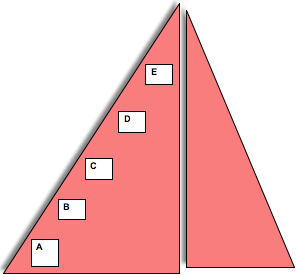A Coaching Model Created by Tim Beckett
(Executive Coach, UNITED KINGDOM)
I have been a yachting Instructor for ten years.
A part of this involves teaching skippers how to plan Coastal or Offshore passages. A high element of danger is involved with this and it makes sense to minimize this as much as possible. Many things can go wrong and it is good procedure to consider these and likely options before setting out.
The first part of the plan is generally quite straightforward; the port of departure, the destination and the route and how long it would take to get there. This may not necessarily be so in coaching but may be the first question that the client is concerned with.
The remainder can take longer considering all the possibilities of the problems that could occur along the way and building in ways to deal with them.
Sailing Passage Plan
A Departure Where are you now?
B Destination Where do you want to go?
C Passage time How long will it take?
D Waypoints Checkpoints on Route
E What if’s What if the plan doesn’t work/Options
Applying this to coaching:
A Departure. Where is the client now? How do they see themselves at the present time? Personally/Family/Financially/Emotionally
B Destination. Where does the client want to end up? Do they know? Is this a long/medium/short term goal?
C Passage time. What is the time frame to achieve this? Is there a different route to achieve the same objective?
D Way points. Can checks be put into place to monitor progress? Are there small steps towards the bigger goal?
E What If’s. What if things don’t go according to plan? In what way could the plan be changed?
